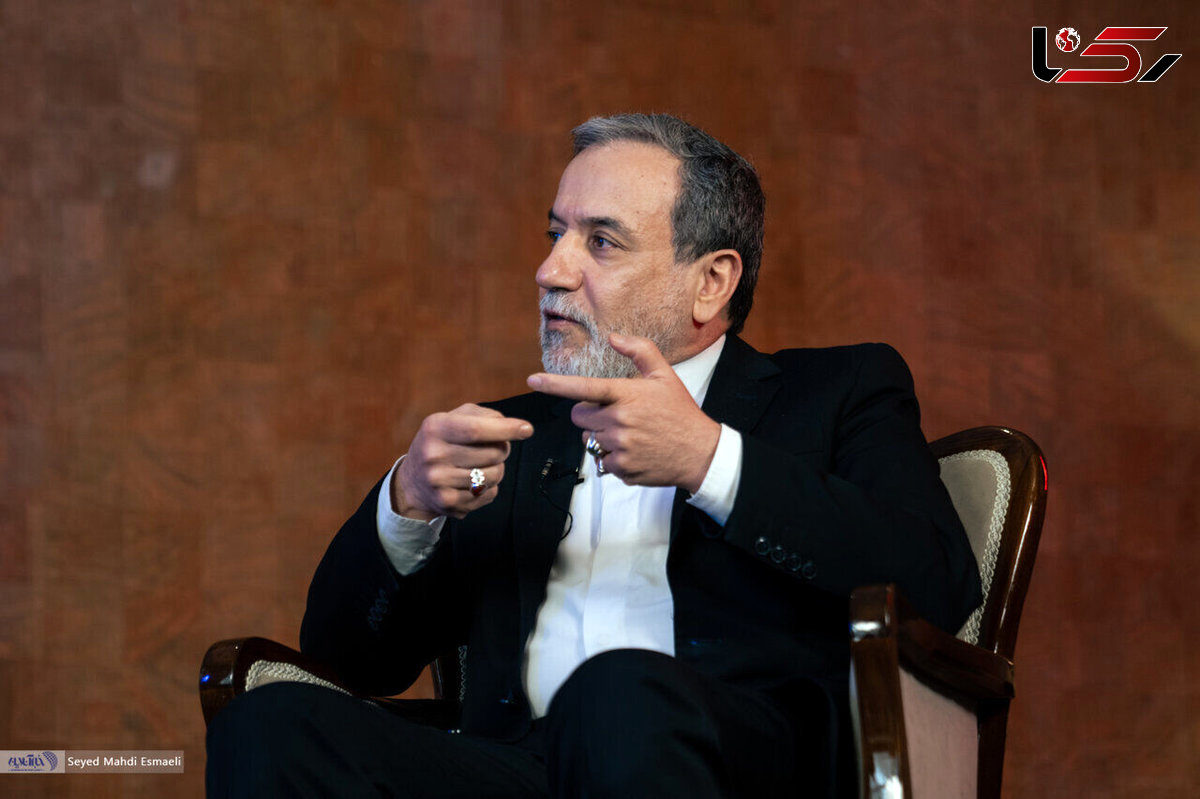Iran FM: Dialogue Is the Only Path, Not Weapons
Rokna Political Desk: Iranian Foreign Minister Seyed Abbas Araghchi, in an interview with CNN, stressed that any concerns regarding Iran’s nuclear program must be addressed through diplomacy, reiterating Tehran’s readiness for dialogue and peaceful solutions.

According to Rokna, speaking on the sidelines of the 80th session of the United Nations General Assembly in New York, Araghchi emphasized that Iran has consistently demonstrated it is not pursuing nuclear weapons, noting that this was proven in 2015 when Tehran concluded the Joint Comprehensive Plan of Action (JCPOA) with the P5+1, including the United States.
Responding to questions regarding a proposed 20-point peace plan for Gaza reportedly agreed upon by U.S. President Donald Trump and Israeli Prime Minister Benjamin Netanyahu, Araghchi underlined that Iran has always called for an end to what he described as genocide in Gaza. He said the only viable plan is one that recognizes the rights of the Palestinian people to self-determination.
Asked about President Trump’s recent remarks claiming U.S. airstrikes had destroyed Iran’s nuclear enrichment capacity and prevented Tehran from acquiring nuclear weapons, Araghchi dismissed the claims, reiterating that Iran has never sought nuclear arms. He added that Iran fulfilled all of its JCPOA commitments, a fact repeatedly confirmed by the International Atomic Energy Agency (IAEA), until the United States unilaterally withdrew from the deal.
Araghchi noted that despite previous negative experiences, including U.S. withdrawal from the JCPOA and subsequent military attacks against Iran’s nuclear facilities, Tehran had accepted invitations earlier this year to resume nuclear talks. However, he said these efforts were derailed after Israel, with U.S. support, carried out strikes against Iran two days before a planned sixth round of negotiations.
The foreign minister explained that Iran’s nuclear technology is indigenous and cannot be eliminated by military operations. “If there are concerns about Iran’s nuclear program, the solution must be diplomatic,” he said. “We have always been ready for dialogue and diplomatic solutions.”
Addressing the snapback of UN sanctions, Araghchi criticized the U.S. and European approach, stating that military options and sanctions alike only complicate matters and make diplomatic resolution more difficult. He also condemned the UN Security Council for, as he put it, failing to address the killing of 65,000 Palestinians in Gaza while instead imposing sanctions on Iran.
On uranium enrichment, Araghchi recalled that under the JCPOA, Iran agreed to limit enrichment levels to 3.67 percent, with an exception of up to 20 percent for the Tehran Research Reactor (TRR), originally built by the United States prior to the 1979 Revolution. He stressed that the TRR produces vital medical isotopes for more than one million Iranian patients, making enrichment at this level a necessity.
Araghchi reaffirmed Iran’s right to uranium enrichment under the Nuclear Non-Proliferation Treaty (NPT), underscoring that Tehran has never violated its obligations and has consistently acted within the framework of international law.
Send Comments